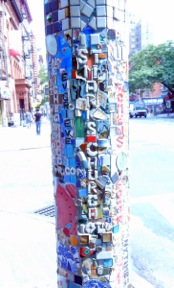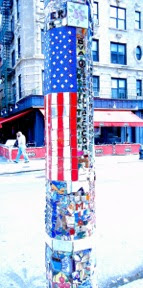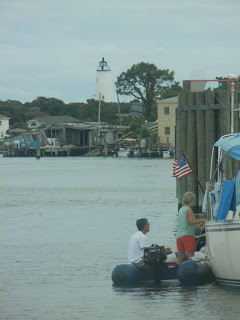Occasionally we purchase something that is made overseas. One of the main things is felted wool items. We've been told it is just not economically feasible to make them in the US and the artists that design them can't produce enough in their own studios to make a living. I often wonder why instead of going to Nepal the artists don't go to Appalacia and work with some of the people there.
I've been told that when you choose to purchase Fair Trade products, you are endorsing an economic system that provides opportunities for producers to lift themselves out of poverty. Fair Trade provides assurances to consumers that producers are paid fair prices for their products and labor. It gives them more direct market access which removes many of the “middle-men” who traditionally have absorbed the majority of the profits. In addition, Fair Trade provides a set of requirements that assure consumers that strict standards have been met to protect the environment, build economic sustainability, empower women, and allow opportunities for education, poverty alleviation, and health care.
Fair Trade looks to create tremendous, positive, and long-term impact for artisans and farmers while delivering great products to the public.
When consumers choose high quality and affordable products that are Fair Trade Certified or sold by members of the Fair Trade Federation, children’s school fees are paid; nutritional needs are met; health care costs are covered; the poor – especially women – are empowered; the environmental impact of production, sourcing, and transport is mitigated to the fullest extent possible; and, much more. Such an impact is created, because Fair Trade approaches development as a holistic process.
I emailed the Fair Trade Federation and got an informative email back from the Executive Director. I asked about working with marginalized US citizens rather than going overseas. Here is her response.
"You are correct in observing that the term "fair trade" is most often used in reference to economically and socially marginalized artistans and farmers in developing countries. These producers face extreme poverty, most often in geographic isolation, as well as a lack of access to North American markets. At the Fair Trade Federation, we find that the challenges and issues faced by producers in the developing world are often different than those faced by producers in North America. Therefore, we find it beneficial to focus our efforts on international economic development. "
Here are the Fair Trade products we have coming in over the next few months.
 |
| Love these cute tooth fairy pouches!! |
The entrance hole is sized just right for wrens and chickadees at 1-1/4”, but can be cut slightly larger for other species such as bluebirds, swallows and flickers. We ship the house lightly stuffed with removable paper shred to maintain shape, which can be easily removed as desired. As the house weathers the wool will eventually break down and birds can use the old house to line their new nests elsewhere.
Carefully hand crafted by a Fair Trade artisan group these houses are traditionally handfelted with natural woolen fibers. Made with renewable and recyclable material. Environmentally friendly, non-toxic, azo-free dyes.
These unique birdhouses are both decorative and functional. They not only can be used as a nesting roost outdoors, but can also serve as a fun decor piece indoors. They make wonderful gifts for the backyard bird lover!
We have a lot of cute designs.
Here are some beautiful felted bags that are coming as well.
Our main mission at Carolina Creations is to bring exciting hand crafted items to our customers and to help the creators make a living doing something they love. We feel fortunate that we've been able to so this for the past 23 years. Thank you for your support!
Janet Francoeur






































